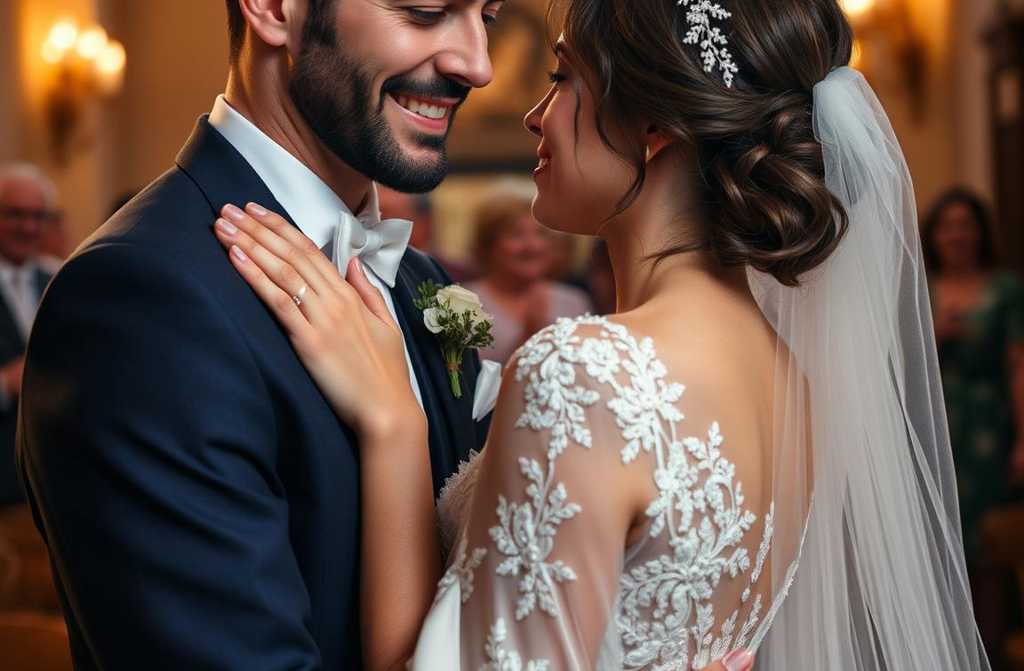In days long past, a man wed a wealthy heiress for fortune aloneyet at the last moment, his heart faltered. Why?
Edmund Whitcombe had yearned for grandeur since his earliest days. Born in a village in Yorkshire, he grew up in a cramped cottage with thin walls and empty cupboards. The glossy pages of society magazines showed him manor houses, gleaming carriages, and lives untouched by wantand Edmund vowed such a life would one day be his.
By five-and-twenty, he had honed the craft of charm. He knew how to linger on a ladys words, weave flattery like silk, and kindle trust with ease. His scheme was plain: find a woman of means and secure his place in her world. Not for affection, but for comfort.
She appeared at a soirée in Londons Mayfair. Eleanor Fairchilda widow past sixty, her fortune vast, her bearing poised. In a gown of soft lilac, her silvered hair caught the candlelight, and her gaze held the quiet grace of one who had known both loss and luxury.
Edmund watched her from the shadows, a borrowed glass of claret in hand. Younger men avoided herthe years between them too stark. But Edmund saw not age, but opportunity.
“Edmund Whitcombe,” he introduced himself, bowing slightly. “You are radiant this evening, Lady Fairchild.”
Her smile was gentle, tinged with wariness.
Thus began his courtship. He arranged suppers by firelight, praised her philanthropy, spoke of longing for a woman of depth and refinement. Eleanor, long accustomed to solitude, found herself stirred by his attentions.
Six months passed before he knelt before her in her rose garden, a ringpurchased on debtglinting in his palm. He spoke of love unbound by time. She hesitated, mindful of the decades between them. Yet his words were honeyed, and she yearned to believe.
Society buzzed with the news. “A penniless youth wedding a matron of means? A fortune hunter!” they murmured. Edmund feigned indifference, though pride flickered within himfor was this not his design?
The wedding was planned with haste. He selected every detailthe blooms, the musicians, the gilt-edged invitations. Outwardly, he played the devoted suitor. In truth, he counted the hours until the ink dried on the marriage contracts.
Then came the day itself. A chapel draped in ivory, sunlight filtering through stained glass. Eleanor entered, her gown modest yet regal. Edmund stood at the altar, his smile polished, his pulse quick with greed.
Vows were exchanged. Rings slipped onto fingers. Triumph was near.
Then his gaze caught upon her shoulder.
There, just beneath the lace, lay a marka pale crescent, like a sliver of moon.
His breath stilled. His chest tightened as if gripped by ice.
He knew that mark. Once, as a boy, he had eavesdropped on his adoptive parents. They spoke of the woman who bore hima girl who left him at a foundling home. The only trace of her: a crescent-shaped birthmark upon her left shoulder.
The memory had lingered, half-forgotten. Now it stared back at him from the woman he meant to wed.
He was moments from binding himself to riches… only to discover the truth: the woman before him was his mother.
Eleanor touched his arm. “Edmund, love, what troubles you?”
The guests shifted, sensing unease.
He forced a smile, brushed his lips to her cheek. The ceremony continued, but his world had shattered.
At the feast, his stomach churned. Fragments of the past rose like spectresthe adoption papers hidden in a drawer, the scribbled note about a girl too young to keep her child. That mark. The same mark.
When the revelry reached its peak, he drew Eleanor aside.
“That mark upon your shoulder,” he began, voice frayed. “Have you always had it?”
“Since birth,” she answered, brow furrowing. “Why do you ask?”
Edmund shut his eyes. “I was a foundling. My adoptive parents said my mother bore such a mark. Upon her left shoulder. Just as yours lies.”
Eleanor paled. Her hands trembled. She staggered back as though struck.
“You cannot mean”
“I fear you are she,” he said, and the words hung between them like a tolling bell.
Silence. Then a choked sob. Eleanor sank onto a chair, her handkerchief pressed to her mouth.
“I was but fifteen,” she whispered. “My family tore my babe from me. I never learned his name… never saw him again.”
Her eyes searched his faceand there, in the curve of his jaw, the shade of his brow, she saw the child she had lost.
“Can it truly be you?”
Edmund slumped into a chair. The grand hall, the laughter, the scent of rosesall turned to ash. He had come for gold. Instead, he had found a horror beyond reckoning.
The door creaked open. Guests peered in, murmuring.
“The wedding is undone,” Edmund declared, his voice raw. “We cannot proceed.”
Eleanor fled, her skirts whispering like a wounded thing. The guests buzzed with speculation.
By dawn, scandal gripped London. Some whispered of infidelity, others of cold-hearted scheming. None guessed the truth.
Edmund vanished within the week, holed up in a dingy inn. Eleanor, after poring over records, confirmed it: her son had returned to heras her betrothed.
With shaking hands, she struck his name from her will.
Then came a letter, unsigned, undated:
“Forgive me…”
After that, no trace of him remained.
Eleanor turned to charity, yet each year, on the day meant for their wedding, she returned to the old clockmakers workshopthe place where her child had been born, and where fate had dealt its cruelest blow.
Their tale became one of Londons darkest whispers. A story not of love, but of a bond twisted by time and greed. A tragedy no ballad could soften.







